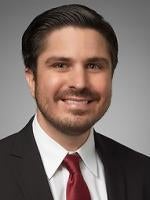In Segway Inc. v. Hong Cai, 2023 Del. Ch. LEXIS 643 (Del. Ch. Dec. 14, 2023), the Delaware Court of Chancery (Will, V.C.) dismissed a claim for breach of fiduciary duty brought by Segway Inc. (the “Company”) against its former President and Vice President of Finance (the “Officer”). The Company framed its claim as a claim for breach of the duty of oversight, commonly known as a Caremark claim (from the landmark case In re Caremark Int’l Inc. Derivative Litigation, 698 A.2d 959 (Del. Ch. 1996)).
Until recently, it was unclear whether the duty of oversight, which typically results in claims against corporate directors, also attaches to corporate officers. However, the Delaware Court of Chancery’s recent decision in In re McDonald’s Corp. S’holder Derivative Litigation, 289 A.3d 343, 370 (Del. Ch. 2023), held that officers are subject to oversight duties, typically extending to matters within such officer’s domain. (See blog article here.) In Segway, the Court of Chancery clarified that a plaintiff accusing a corporate officer of a breach of the duty of oversight is subject to the same onerous pleading burden applicable to such claims against corporate directors: the plaintiff must plead facts giving rise to a reasonable inference that the defendant consciously ignored red flags and failed to act after learning of corporate illegality. Alleging that a corporate insider “ignored” routine financial troubles and business failures is not enough.
In 2015, Ninebot (Beijing) Tech Co., Ltd. (“Ninebot”) acquired the Company. That same year, the Company hired the Officer as its Vice President of Finance, where she oversaw “the daily operations of the finance department and provided leadership and coordination in [the Company’s] administrative, business planning, accounting and budgeting efforts.” Shortly thereafter she was appointed as interim President, and in 2018 as the President, all the while functioning as the Company’s in-house accountant “with complete responsibility for [the Company’s] tax matters.”
After the acquisition, the Company pivoted to focus on selling Ninebot products, and it downsized and eventually closed its headquarters, laid off staff, and terminated the Officer. Following the Officer’s termination, the Company’s finances were integrated with Ninebot’s finances. The Company allegedly discovered that there were discrepancies in the financial information provided by the Officer to the board, including a rising backlog of accounts receivable. In response, the Company filed suit against the Officer, alleging that she breached her duty of oversight because she “knew or should have known there were potential issues with some of [the Company’s] customers, which caused [the Company’s] accounts receivable to continuously rise”, and that she continuously ignored these issues, failed to take action to address them, and/or failed to advise the Company’s board. The Officer moved to dismiss. The Court of Chancery sided with the Officer, noting that the Company’s allegations are “an ill fit for a Caremark claim.”
A plaintiff may state a claim for failure of oversight against a director or officer where such person acted in bad faith by (i) utterly failing to implement any reporting or information systems or controls; or (ii) having implemented such a system or controls, consciously failing to monitor or oversee their operations, including by ignoring red flags. And, with respect to officers, the scope of an officer’s duty of oversight would need to fall within the officer’s sphere of corporate responsibility. The Court found that generic financial matters such as learning of issues with unspecified customers, revenue decreases, and increases in receivables “are far from the sort of red flags” that could trigger liability. The Company failed to allege facts that would suggest bad faith; rather the Company sought to have the Officer “answer for a decrease in sales and an increase in receivables” with the benefit of “20/20 hindsight.”
There has been a significant increase in duty of oversight claims against Delaware directors and officers. The Segway decision serves to reinforce the often-quoted maxim that a claim for breach of the duty of oversight continues to be “possibly the most difficult theory in corporation law upon which a plaintiff might hope to win a judgment.” As noted by the Court:
The Caremark doctrine is not a tool to hold fiduciaries liable for everyday business problems. Rather, it is intended to address the extraordinary case where fiduciaries’ ‘utter failure’ to implement an effective compliance system or “conscious disregard” of the law gives rise to a corporate trauma. These tenets of our law persist regardless of whether a Caremark claim is brought against a director or an officer. Officers’ management of day-to-day matters does not make them guarantors of negative outcomes from imperfect business decisions.
Counsel defending duty of oversight claims should keep this recent jurisprudence in mind. The Segway decision serves the important purpose of re-centering of the Caremark doctrine back on its original foundation.





 i
i


